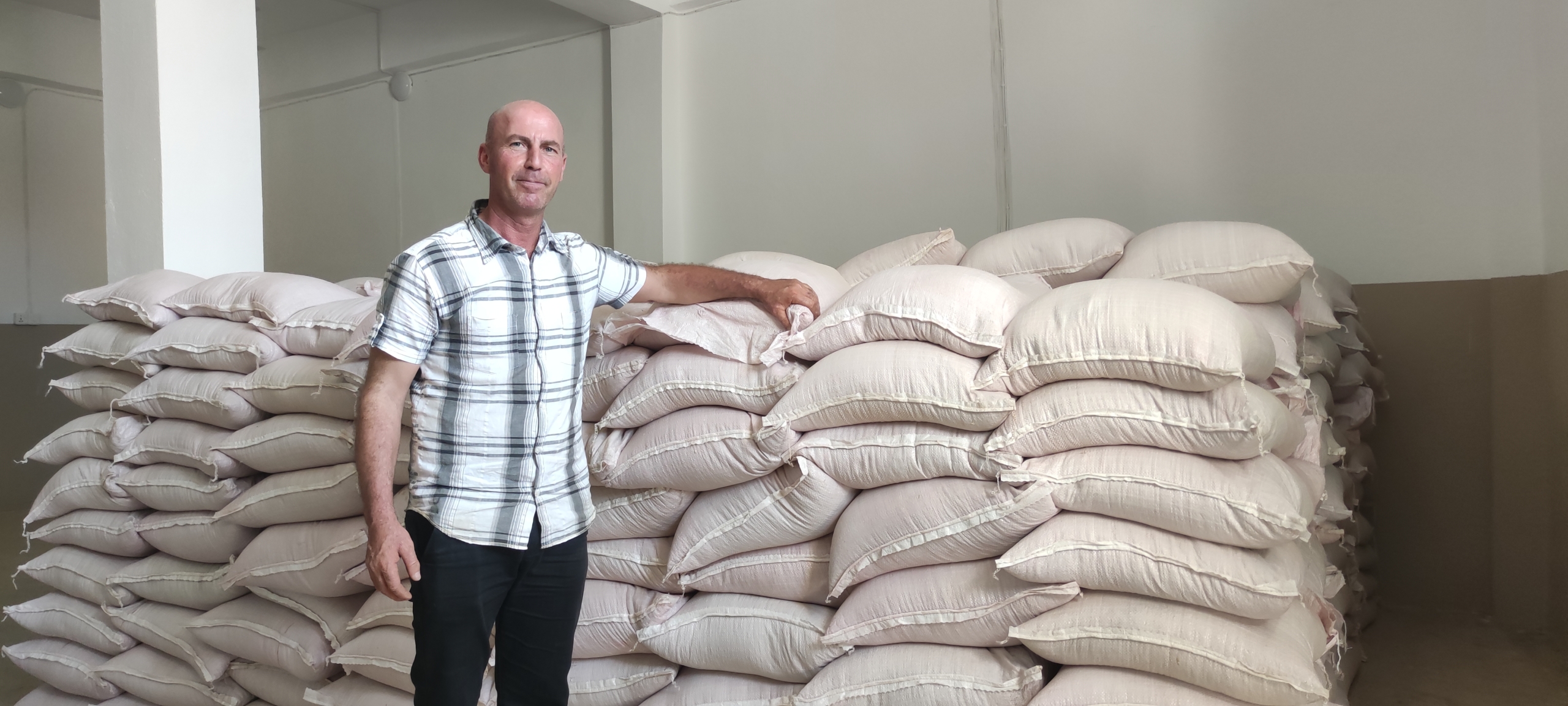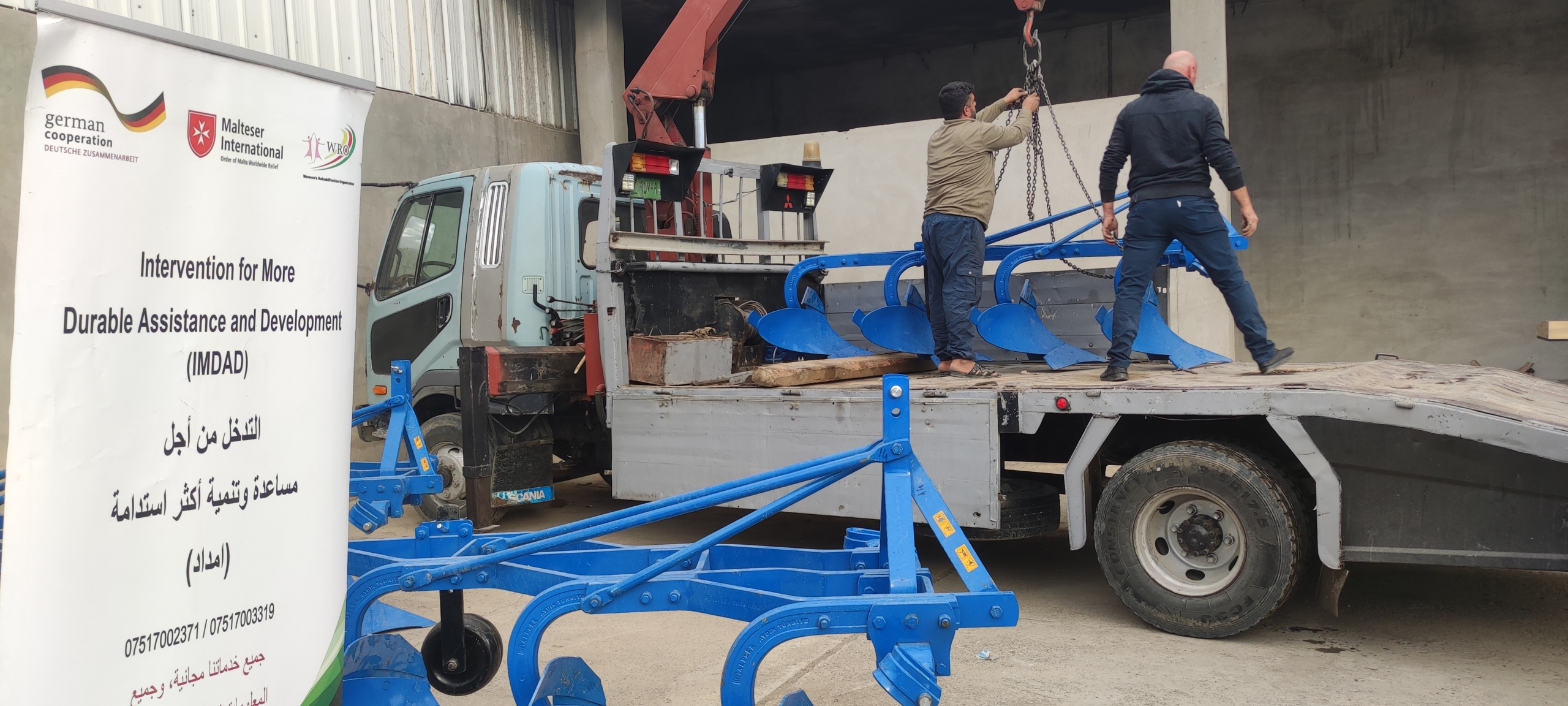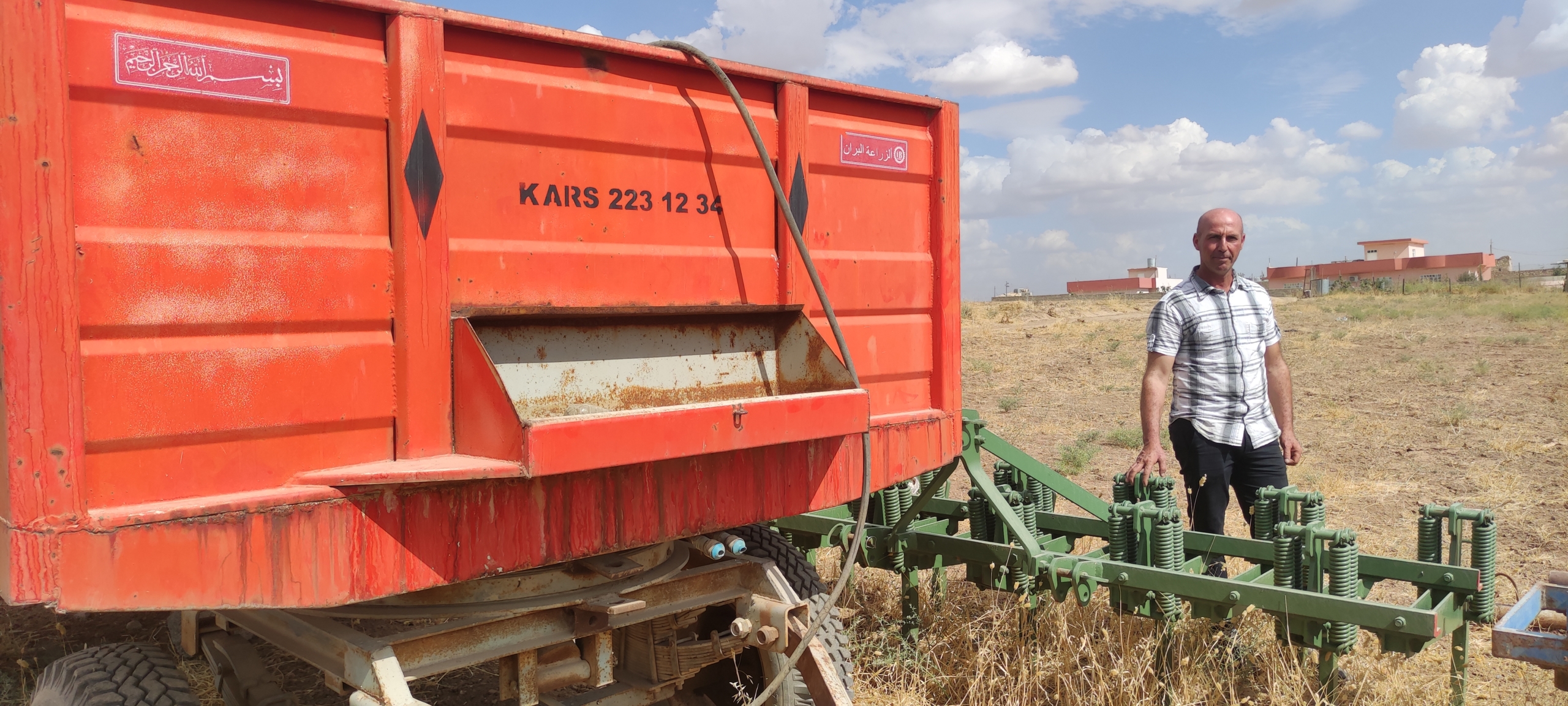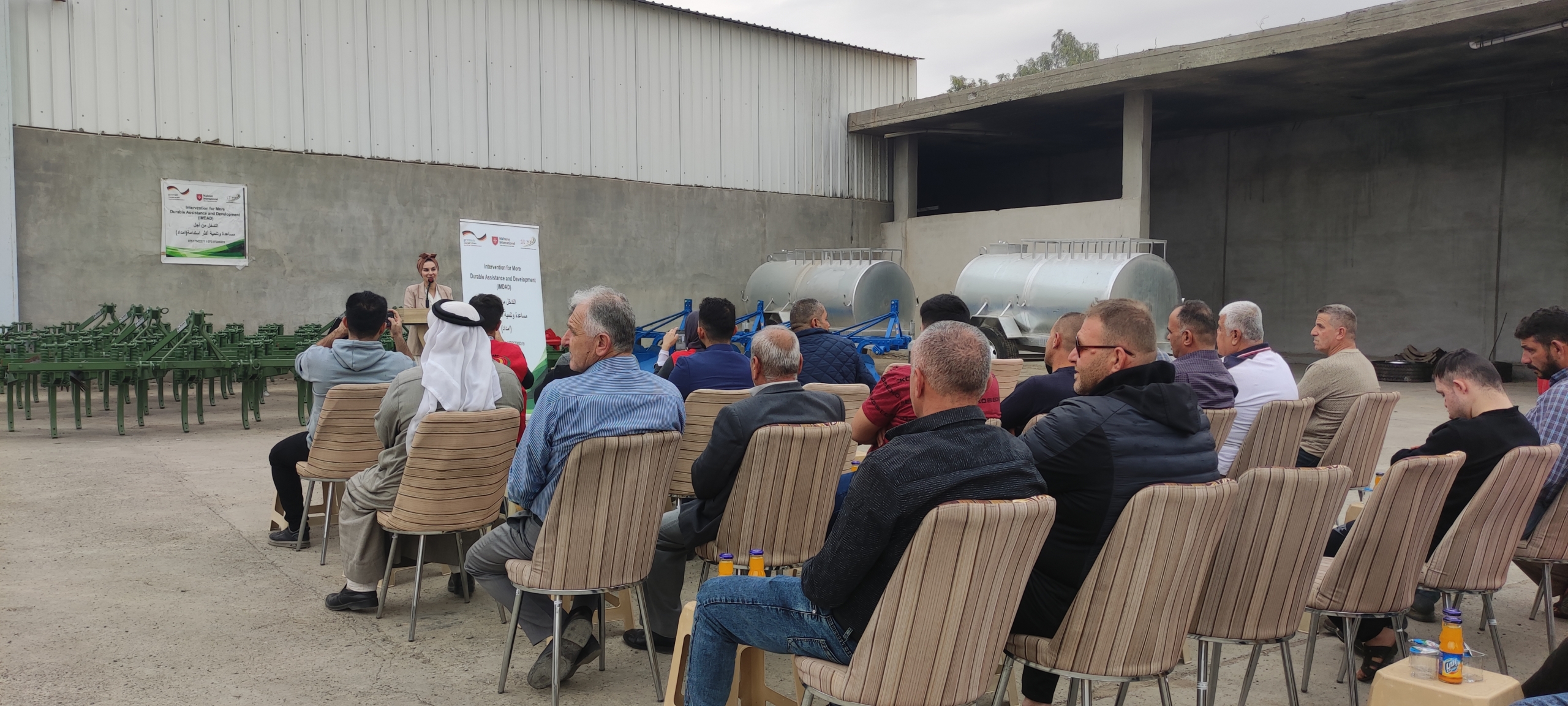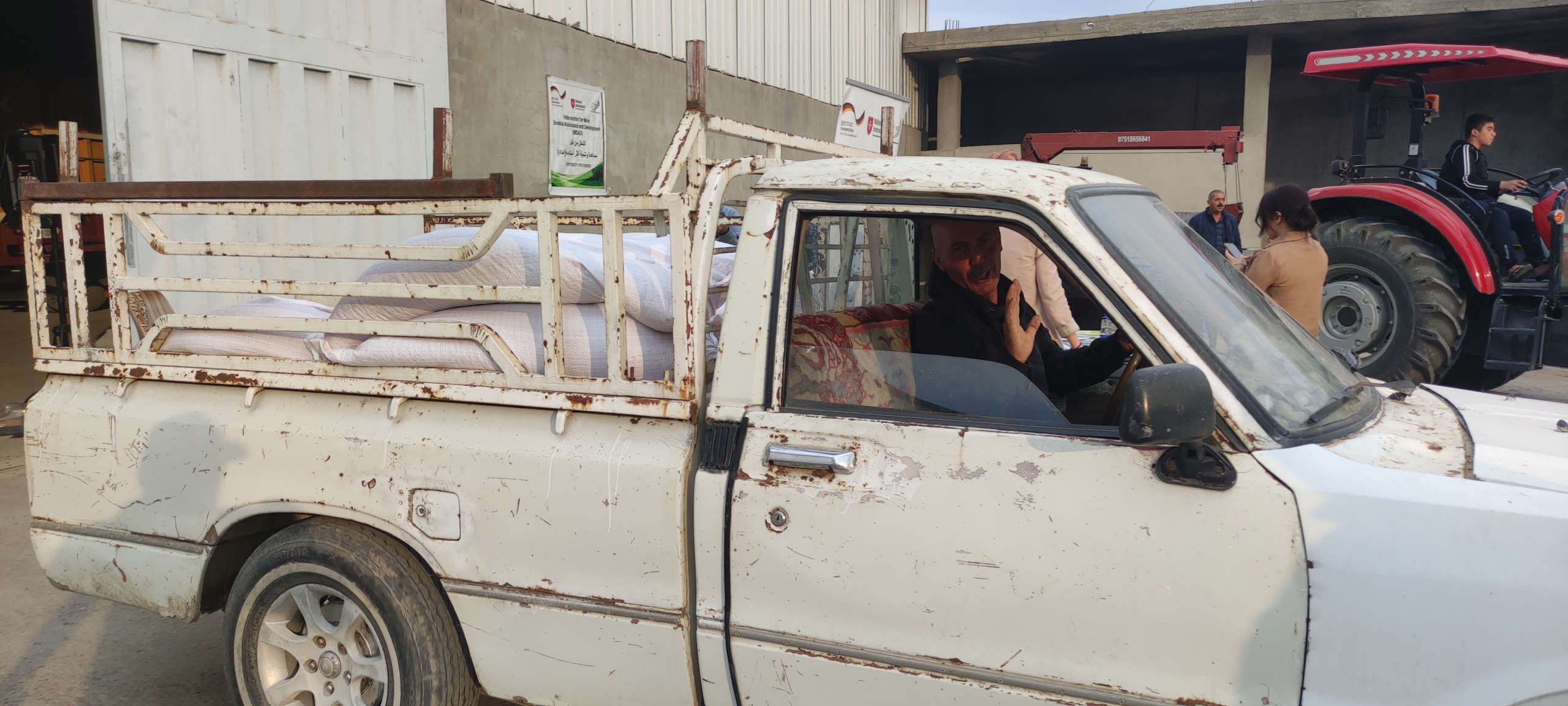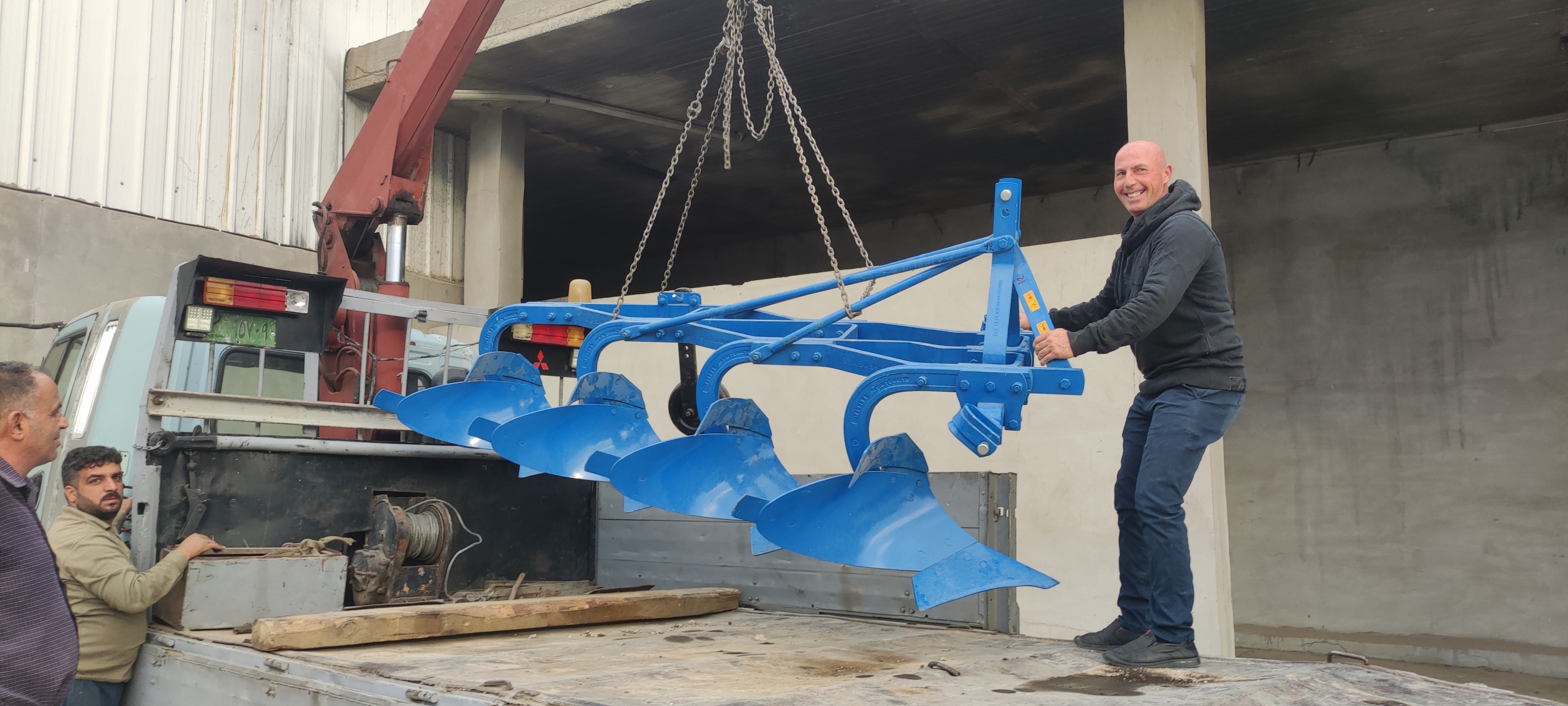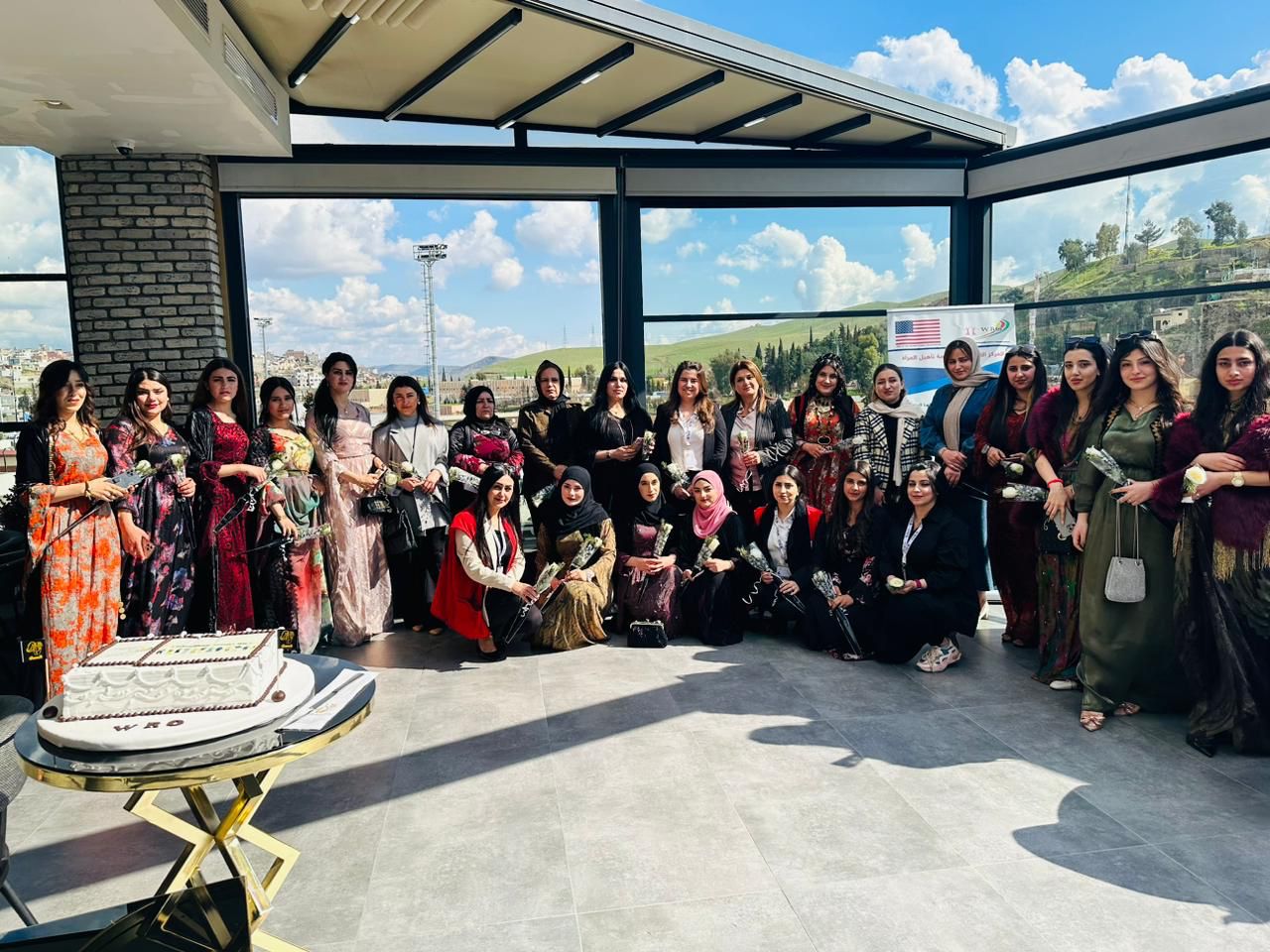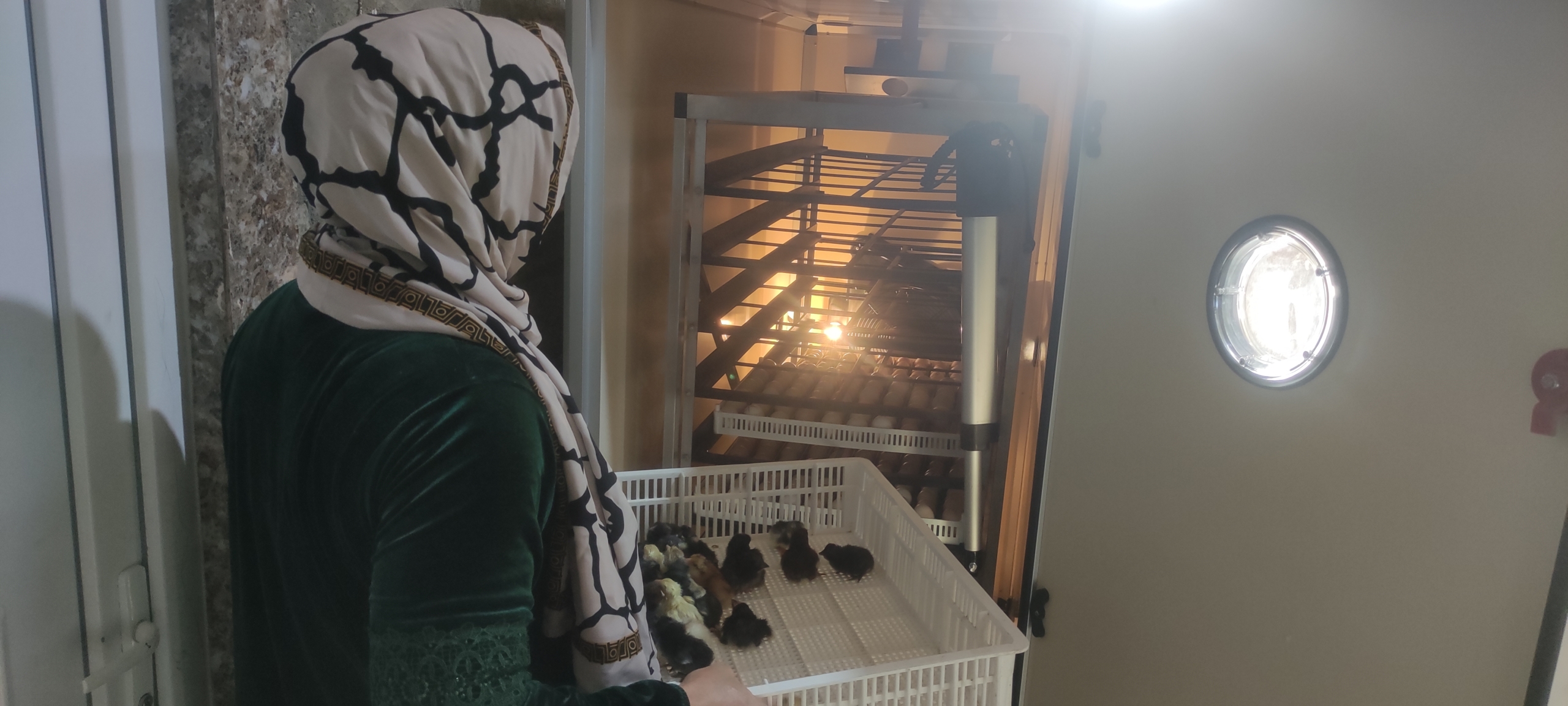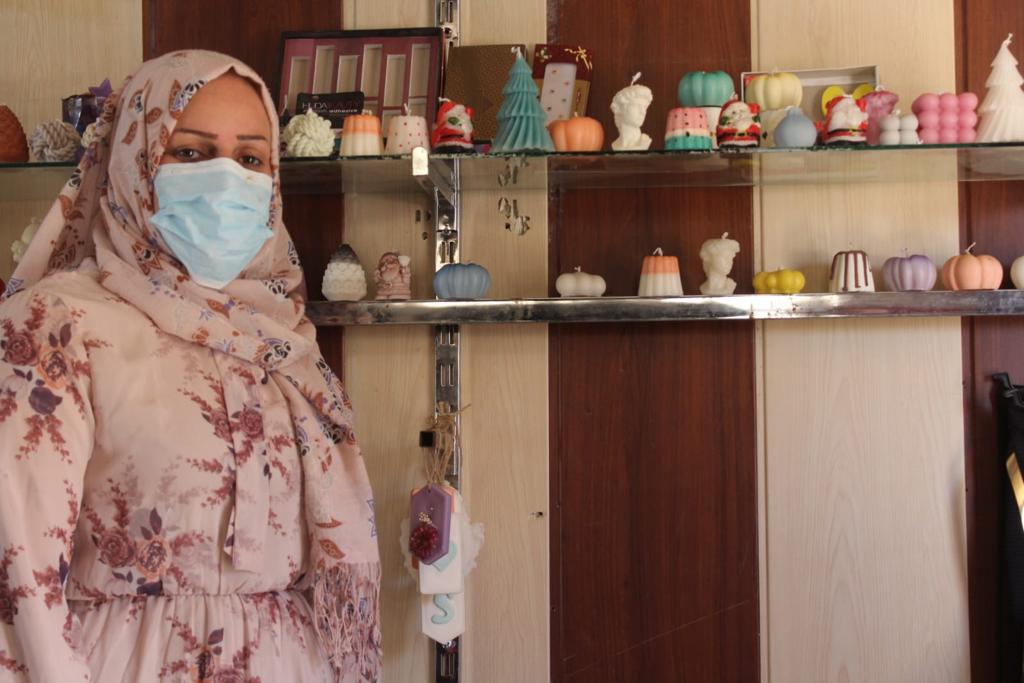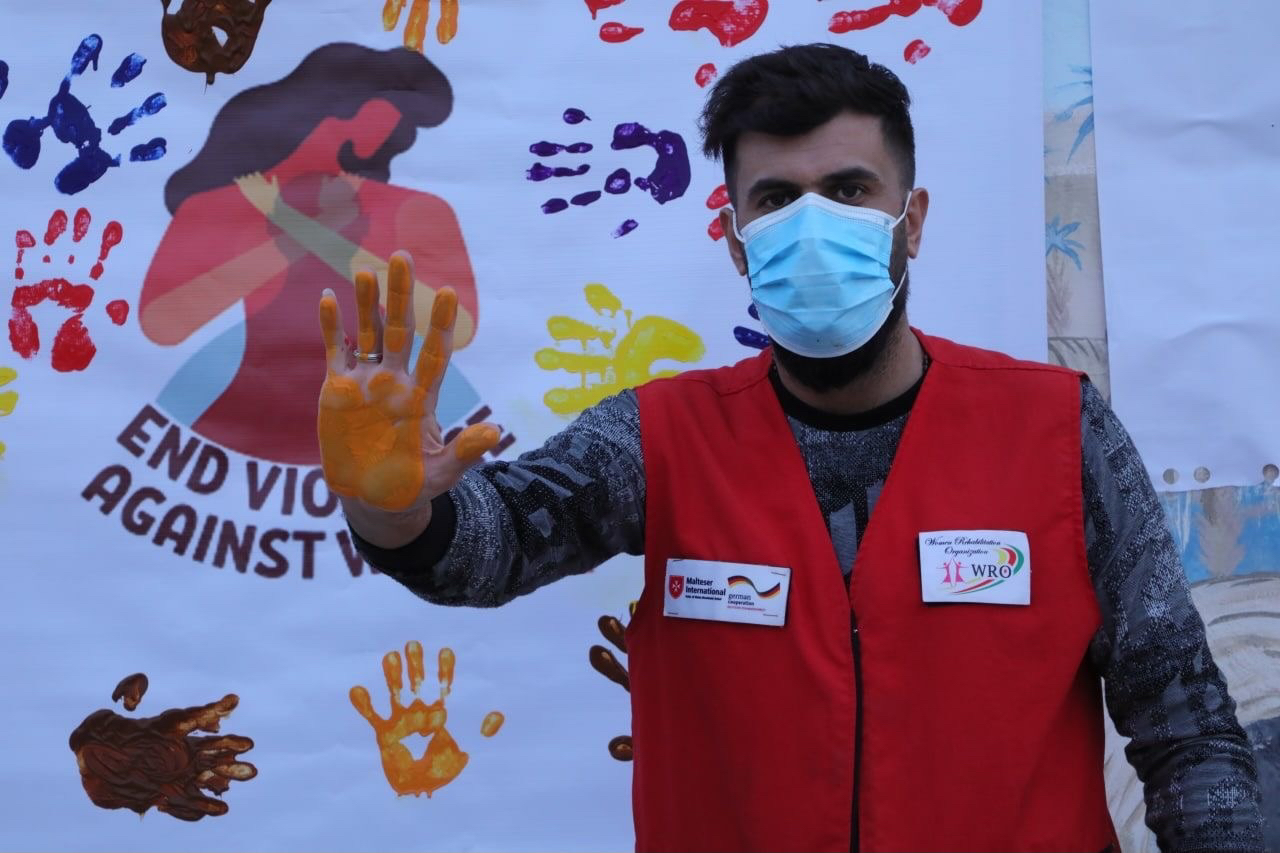Badee’s Story
Badee is a 41 years old Christian farmer from a village in Ninewa Plains and one of the Economic Empowerment Asset Replacement Activity beneficiaries.
Badee’ said” International Food Day serves as a reminder of the need to address issues like hunger, malnutrition, and food scarcity that affect millions of people around the world. is an opportunity to recognize the efforts of farmers, food producers, and organizations that work tirelessly to feed the world’s growing population. It’s a time to reflect on the impact of our food choices on the environment and to promote sustainable farming practices that protect natural resources. wheat’s nutritional value, versatility, affordability, and cultural importance make it a crucial food product that plays a vital role in providing sustenance to people around the world. Its ability to adapt to different environments and its high caloric density make it a reliable source of nutrition for many communities.
I have been involved in seed crop farming (wheat and barley) since I was young, as I inherited this profession from my ancestors. I used to own all the machinery and equipment needed for farming, but I lost all of these tools when ISIS occupied and entered my village Batnaya. We left our homes and moved to the Kurdistan region, leaving everything behind.
After my village was liberated, I returned after two years, and all I found was the land I used to own. The agricultural machinery and equipment had been stolen. I started from scratch, buying some basic tools and renting others, even though I needed many essential machines and equipment. My work became limited in scale, and productivity decreased compared to the past. I couldn’t afford all the necessary machinery, equipment, and sufficient seeds to cultivate as much land as possible.
After registering with the WRO organization for support in my agricultural project, and after several stages, I was accepted. I participated in the business skills training provided by the organization, which was extremely beneficial. I learned modern agricultural techniques, and methods to combat desertification, drought, and climate change using modern irrigation methods. I also received training in marketing, project management, and asset sustainability to maximize profits with minimal effort and high productivity.
After completing these training sessions, the organization asked us to identify the essential needs that would expand our projects. I identified my need for a Spring Cultivator 11 legs double springs, in which was essential for my work. I used to rent it for a specific amount and had to wait for my turn among a group of registered farmers who also needed to rent it. This caused delays in sowing the seeds.
Indeed, before the start of the farming season, the organization delivered the plow machine to me, and I also received the Wheat seeds. In turn, I began cultivating a larger area of land at the right time, without waiting for my turn or incurring rental costs. Thanks to God, I succeeded in this year’s harvest of wheat and barley, with higher quantities than previous years, and I achieved higher profits.
Finally, I want to express my gratitude to the WRO organization and its partners, including Malteser International and the BMZ.”



